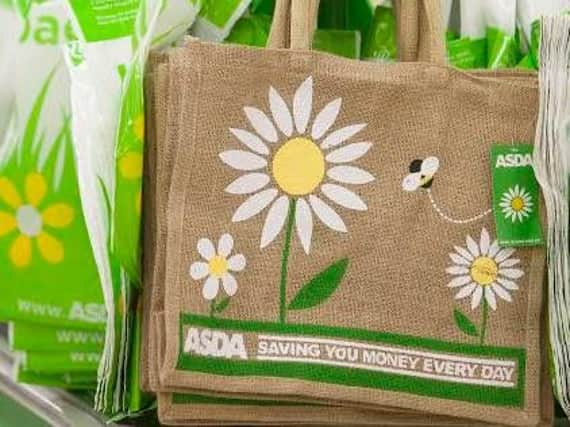Easter spending boosts the supermarket sector as Asda and Morrisons enjoy sales growth


The latest figures from Kantar showed that shoppers bought £335m worth of Easter eggs and seasonal chocolate over the past 12 weeks.
Sainsbury’s managed to reclaim second position from former merger partner Leeds-based Asda, despite Sainsbury's seeing a sales decline of 1.2 per cent.
Advertisement
Hide AdAdvertisement
Hide AdFraser McKevitt, head of retail and consumer insight at Kantar, said: "It is complicated. Sainsbury's tends to have a slightly higher market share than Asda at Easter time.
"Despite Sainsbury's declining that means they are still ahead of Asda."
Kantar said the average Asda shopping basket increased in value and shoppers visited more often. It added that Asda remains strong in its northern heartland with the north of England and Scotland accounting for more than 40 per cent of sales.
"Asda is doing an awful lot of work on their ranging - that can help get things into the basket," said Mr McKevitt.
Advertisement
Hide AdAdvertisement
Hide Ad"Asda also managed to push up frequency which is quite impressive. They didn't have a huge increase in average basket size, but the rest of the big four are declining so in relative terms it's actually a pretty good performance."
He said that Asda is growing own label lines quicker than brands.
"Particularly the core standard Asda own label is growing well and Extra Special is growing double digits. That's pretty impressive," said Mr McKevitt.
"Asda has a great deal of local affection, as indeed does Morrisons."
Advertisement
Hide AdAdvertisement
Hide AdAsda and Bradford-based Morrisons have exactly the same percentage of their sales in the North of England at 32 per cent.
Sainsbury’s was alone among the big four supermarket groups in seeing sales fall in the 12 weeks to April 21.
In contrast sales at market leader Tesco rose 1.0 per cent, whilst Morrisons saw growth of 0.6 per cent and Asda's sales rose 0.3 per cent.
Kantar said alcohol sales were the biggest contributor to Morrisons’ 0.6 per cent growth.
Advertisement
Hide AdAdvertisement
Hide Ad"Morrisons also grew fruit and vegetables pretty strongly. Fruit and vegetable sales were up 4 per cent. That was pretty good going," said Mr McKevitt.
"They also managed to find an extra 78,000 shoppers through the door at Morrisons, which is pretty good going as well."
As the dust settles following last week’s CMA decision to block the merger between Sainsbury's and Asda, Kantar said Tesco’s position as the UK’s largest supermarket remains secure.
Mr McKevitt said: “More than three quarters of British households visited Tesco in the past 12 weeks, over five million more than each of its two closest rivals.
Advertisement
Hide AdAdvertisement
Hide Ad"Sainsbury’s and Asda are continuing to battle it out for second place. Two thirds of the public were aware of the proposed merger: the majority of those who knew about the CMA ruling didn’t have an opinion as to whether it was a good or bad outcome.
"Half of shoppers were neutral about the CMA's decision or they said: 'I simply don't care'. A third said they were happy or very happy it was rejected. On balance it didn't seem consumers were particularly exercised by it at all."
Kantar said all of the big four lost market share to German owned discounters Aldi and Lidl, whose combined share was 13.6 per cent.
Mr McKevitt said: “Shoppers indulged in £335m worth of Easter eggs and seasonal chocolate during the 12 weeks and the average household took home 10 such treats during the longer build up from February to the holiday weekend.
"The warm weather over the Easter break helped boost sales of ice cream by 8 per cent and hay fever remedies by 27 per cent during the past four weeks as families made the most of the sunshine.”